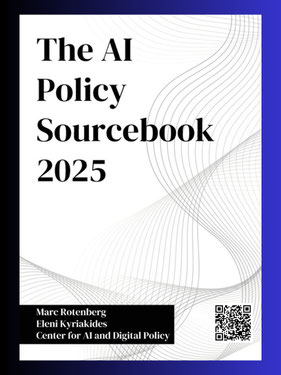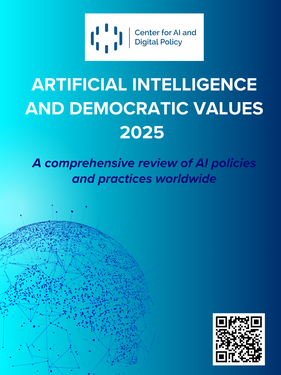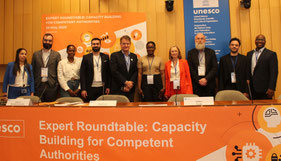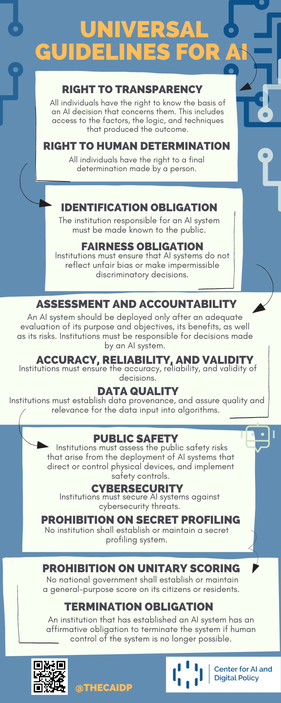AI Policy News

CAIDP Update 8.06 - AI Policy News
(JFeb. 9, 2026)



CAIDP, Statement to the UN General Assembly on AI Governance (Sept. 22, 2025)
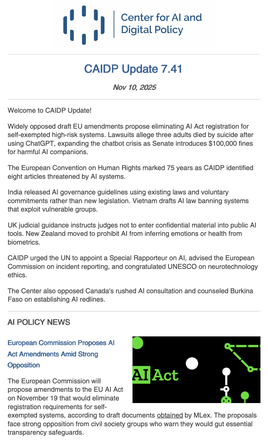







Deal is Final on EU AI Act, Sweeping AI Legislation to be Adopted (Dec. 7, 2023)
CAIDP Publications


CAIDP and IBA, "The Future is Now – Artificial Intelligence and the Legal Profession" (Sept. 2024)

CAIDP, No Time for Delay: Identifying Rights-Impacting and Safety-Impacting AI Systems in Federal Agencies (October 2024)
CAIDP Campaigns

CAIDP to the National Association of Attorneys General, Oppose Preemption of State AI Regulation and Enforcement (May 13, 2025).

CAIDP's Merve Hickok statement on AI Policy before the US Congress, March 8, 2023 - “The U.S. does not have the guardrails in place, the laws that we need, the public education, or the expertise in the government to manage the consequences of these rapid technological changes.” [CAIDP - House Hearing on Advances in AI]



Council of Europe opens first ever global treaty on AI for signature (Sept. 5, 2024)
The Council of Europe Framework Convention on artificial intelligence and human rights, democracy, and the rule of law (CETS No. 225) was opened for signature during a conference of Council of Europe Ministers of Justice in Vilnius. It is the first-ever international legally binding treaty aimed at ensuring that the use of AI systems is fully consistent with human rights, democracy and the rule of law.

CAIDP Files Complaint with FTC concerning Zoom's use of ML and AI techniques (Aug. 31, 2023)
AI Policy Events



CAIDP Reunions



CAIDP Events

CAIDP Meets with Delegation from LIBE Committee of the European Parliament, Washington, DC, May 26, 2022

CAIDP Hosts Conference on Artificial Intelligence and Democratic Values, 10 November 2021

CAIDP Conversation with Former White House Advisor John Podesta, 4 November 2021

CAIDP meets with Members of the European Parliament AIDA Committee, Washington, DC, 4 November 2021

























